Search Results
Showing results 21 to 40 of 148
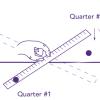
Free Fall
Source Institutions
In this quick activity (page 1 of PDF under SciGirls Activity: Hockey), learners will use a simple physics of motion and gravity demonstration to test their predicting skills.

Waterproof Hanky
Source Institutions
In this physics demonstration, learners will be surprised when a handkerchief holds water in an upside-down glass.

Why Doesn’t the Ocean Freeze?
Source Institutions
In this activity, learners explore how salt water freezes in comparison to fresh water.

Evaporation
Source Institutions
This three-part activity consists of an activity that groups of learners develop themselves, a given procedure, and an optional demonstration.
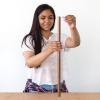
Eddy Currents
Source Institutions
In this activity related to magnetism and electricity, learners discover that a magnet falls more slowly through a metallic tube than it does through a nonmetallic tube.

It's a Gas, Man
Source Institutions
In this activity, learners discover if carbon dioxide has an effect on temperature.

Falling Feather
Source Institutions
In this physics activity, learners recreate Galileo's famous experiment, in which he dropped a heavy weight and a light weight from the top of the Leaning Tower of Pisa to show that both weights fall
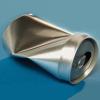
Imploding Pop Can
Source Institutions
In this dramatic activity/demonstration about phase change and condensation, learners place an aluminum can filled with about two tablespoons of water on a stove burner.

Dark Adaptation
Source Institutions
In this activity (6th on the page), learners investigate how photoreceptors in the eye (rods and cones) "adapt" to low light conditions.

Crunch Time
Source Institutions
In this quick and easy activity and/or demonstration, learners use two empty 2-liter bottles and hot tap water to illustrate the effect of heat on pressure.

Why do Hurricanes go Counterclockwise in the Northern Hemisphere?
Source Institutions
In this kinesthetic activity, learners will play a game with a ball to demonstrate the Coriolis force, which partly explains why hurricanes in the Northern Hemisphere rotate counterclockwise.
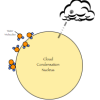
Do Cities Affect the Weather?
Source Institutions
In this activity, learners explore clouds and how they form.

Vanishing Rods
Source Institutions
This is a quick activity/demonstration that introduces learners to the concept of index of refraction. Learners place stirring rods in a jar of water and notice they can see them clearly.

Two Ball Bounce
Source Institutions
This is a quick, yet dramatic activity/demonstration that introduces learners to the concept of energy transfer. A small ball is placed on top of a large ball and both are dropped together.

Can You Make Ice Cream in Two Minutes?
Source Institutions
In this demonstration, learners observe how liquid nitrogen both boils and freezes ingredients to make ice cream in two minutes.
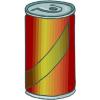
Root Beer Float
Source Institutions
In this quick activity/demonstration about density, learners examine what happens when two cans of root beer--one diet and one regular--are placed in a large container of water.
Become a Master of Inertia
Source Institutions
In this activity, learners explore inertia as they attempt to whip a strip of paper out from under two coins dangling on the rim of a water glass.
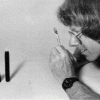
Diffraction
Source Institutions
In this optics activity, demonstrate diffraction using a candle or a small bright flashlight bulb and a slide made with two pencils.
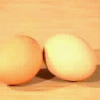
Egg-Citing Physics
Source Institutions
In this demonstration about momentum, use physics to distinguish between a hard-boiled egg and a raw egg without cracking them open.
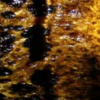
Amphibian Skin
Source Institutions
In this activity, learners explore the concept of permeability to better understand why amphibians are extremely sensitive to pollution.
